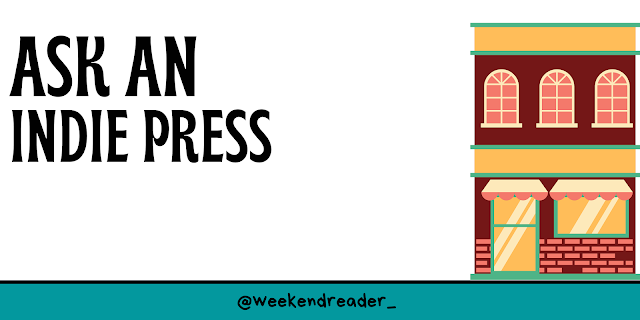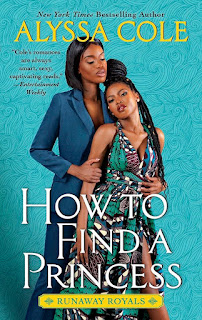Ask An Indie Press
Sometimes a random tweet opens the door for an expected YES. Let me explain, I was ruminating one day on Twitter, like I always do putting feelers out for interviews. In response to that tweet, Sara from Inspired Quill asked if I would be open to an interview with an indie press. I quickly said, heck yeah! Thankfully, Sara had the foresight to ask the question because it opened the door to have me shape the Ask A project. Ask A...is a 3-part blog series where I interview someone in the publishing world to get some insider knowledge. The first post in the series is from indie press Inspired Quill.
Inspired Quill started in 2009 as a blog, 2010 won an entrepreneurial award, and by 2011 became a registered social enterprise. Inspired Quill works to be an ecological, people-oriented press that actively develops an author’s skills, by facilitating open involvement in marketing and editing. Sara-Jayne Slack is the Managing Director of Inspired Quill and was gracious enough to chat with me about working at an indie press.
**********************************Interview*********************************
WR: What advice would you give to an aspiring author when querying their
work?
Sara: Read the guidelines! I honestly cannot stress this enough. I know a lot of presses make you jump through hoops and sometimes they seem a bit ridiculous. But in my experience, they’re always there for a reason. For example, we initially ask for two chapters which have been formatted in word, so that we can make a quick call as to whether we’d like to see the rest (to keep things moving and the first round nice and speedy), and so we can make notes for the author using track changes. The amount of authors who still send the full PDF manuscript is mind-boggling. I used to politely respond to authors to remind them of the accepted formats, but it began happening so much that now I simply delete them. It might seem harsh, but from our perspective, we wouldn’t necessarily want to work with an author who misses small but crucial details!
WR: Yikes! What is one mistake that authors make when they are
trying to find a home for their manuscript?
Sara: As above! I would also suggest not trying for a scatter-gun approach when querying. I appreciate that, much like job-hunting, querying can be a laborious, thankless task. However, making sure that you’re aligned with the press that you’ll be represented by makes all the difference when it comes to actual publication. Making sure that you like the look and feel of the other titles that the press puts out is vital – can you see your book nestled alongside them in the publisher’s catalogue?
WR: What makes Inspired Quill unique as an indie press?
Sara: That’s a really good question. I think it’s less to do with any one thing (be it the press’ age or background or even our ethos), and more to do with how all of those ingredients come together. I think a good judge of this is what other people pick up from interacting and working with us. Generally, the things that gets constantly picked up by other people are our sense of optimism about the changing industry, how transparent we are, and the genuine support and care we give our authors. We’ve also just passed our 10th birthday, which (sadly) is fairly rare in the world of indie presses. 🎈
WR: That's awesome, congratulations on making this huge milestone!
WR: What role do you think indie presses play to support publishing and
reading in general?
Sara: One of the biggest roles we play is in adding variation through discovery and risk-taking. Often, the ‘Big 5’ publishers look for books which they know will have commercial success. It’s why there are far too many celebrity cook books and self-help(ish!) books out there. The name sells. Indies often work with debut authors on titles we feel passionately should be out for the world to see. It’s a great way for readers to see some diversity (there have been many, many small presses which specialize in diverse literature and pour energy, heart and soul into finding those authors and works), and for authors to understand how publishing actually works.
In a lot of ways, small presses can also pave the way for big presses when it comes to industry-standard work. Most of us were fully remote-working long before the pandemic, and we’ve been shouting about diversity and inclusion for years.
WR: What measures does
the Inspired Quill take to support/encourage diverse authors to publish with
the press?
Sara: There’s a lot that we now do as standard, from ‘blind’ first-submissions in an attempt to remove any subconscious bias from the process, to actually being super up-front when we are open for submissions and saying that we want to hear from diverse voices. Interestingly, I never considered actively mentioning this during open-subs time as I thought it should be self-evident, but that’s not the case in this industry. It’s actually only been the past few years where we’ve amended the submissions page on the website to make it incredibly clear that we want to hear from all authors, and that everyone should feel comfortable sending work to us. It’s important not to be silent on the subject of diversity – although that’s taken me a long time to learn, I’m trying to make up for it now. To read Inspired Quill's Diversity Pledge.
I'm so thankful I had the chance to chat with Sara for this entry in the series. If you want to learn more about Inspired Quill check out their publishing blog.
Happy Reading!


.png)

Comments
Post a Comment
Thank you for contacting Weekend Reader, I will be in touch as soon as I read your comment. Happy Reading!